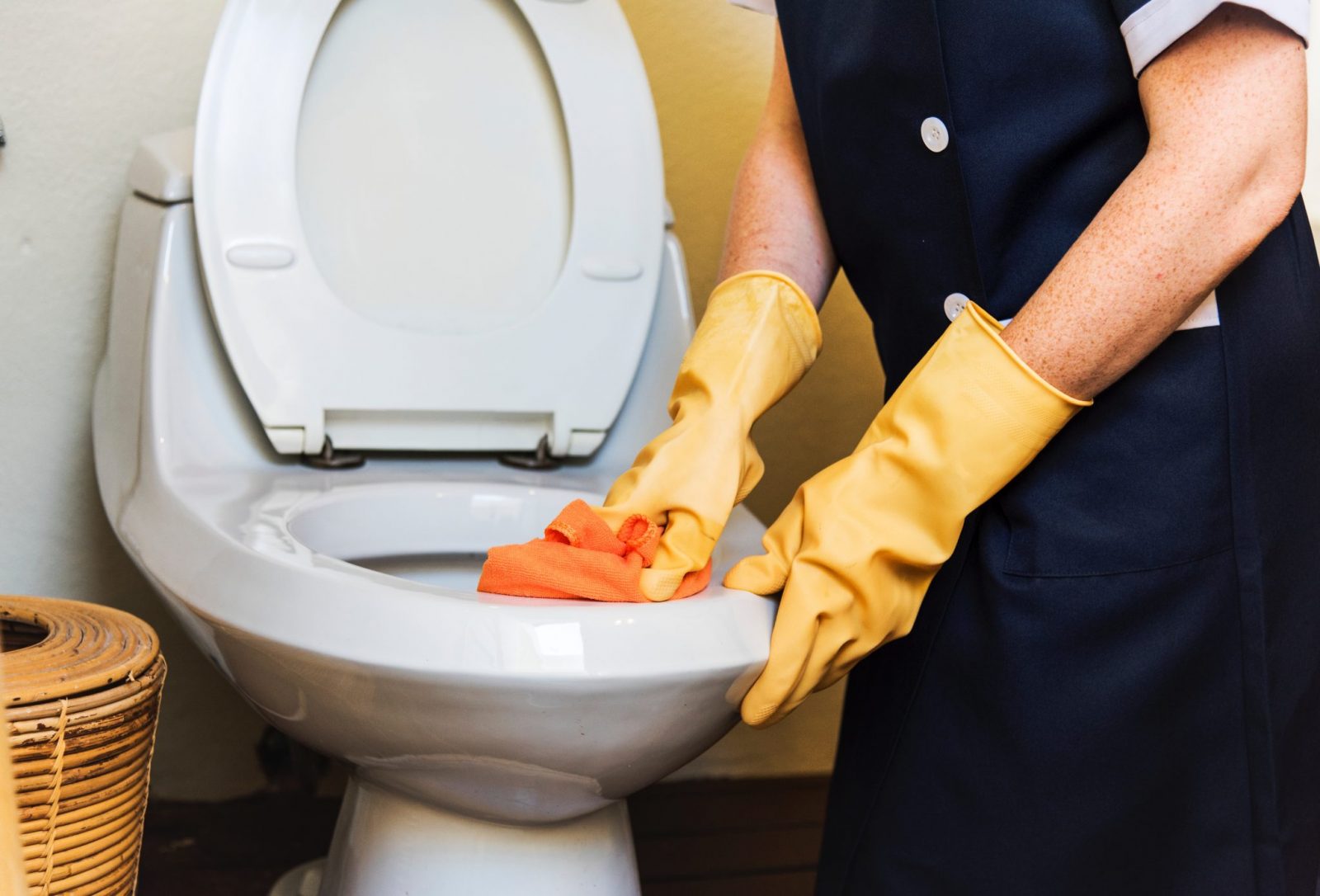
Cleaning is typically a task that helps us protect our health, and it’s an integral part of your daily life if you want to keep a tidy home. You probably use cleaning products every day, but have you ever thought about the harmful effects some of them can have on your health?
The purpose of cleaning is often defeated because many household cleaning products contain chemicals that are harmful to our bodies. Inhaling them can cause many health problems, even long-term effects, if the necessary measures are not taken on time.
Throughout this blog post, we will explore the harmfulness of these commonly found cleaning products and their associated risks. Moreover, we will present some of the natural and eco-friendly alternatives that can be just as effective when cleaning.
What are the potential health risks of using cleaning products
Using certain cleaning products can potentially pose health risks due to the chemicals they contain. Inhalation of volatile organic compounds (VOCs) and airborne particles emitted by many cleaning products can irritate the respiratory system, causing coughing, wheezing, and even asthma symptoms.
Some products with harsh chemicals can also lead to skin irritations and even chemical burns upon direct contact. Additionally, cleaning products that release fumes or contain harsh chemicals can cause eye irritations and injuries. In contrast, certain fragrances or chemical ingredients may trigger allergic reactions such as sneezing, watery eyes, or skin rashes.
Prolonged exposure to harmful chemicals can have long-term health implications, including hormone disruption, reproductive issues, increased cancer risks, and other chronic conditions. The severity of these risks depends on factors like chemical concentration, duration of use, ventilation, and individual sensitivity.
Harmful cleaning products
There are a lot of common cleaning products on the market that contain harmful ingredients that can put our health at risk. Having an understanding of what these ingredients are and the dangers they pose can help us make better choices.
- Bleach is a commonly used household cleaner that can irritate the skin and respiratory system. Ingesting bleach can be toxic, and it can produce hazardous gas when combined with certain chemicals. Its active harmful ingredient, sodium hypochlorite, should be checked for on product labels.
Additionally, never mix bleach or bleach-containing products with ammonia-based cleaners, as the consequences can be lethal.
- Ammonia, another frequently employed cleaning agent for window and oven surfaces, can cause respiratory issues, skin and eye irritation, and harm if ingested. Glass and oven cleaners, among other household products, often contain ammonia.
- Air fresheners, although they serve to enhance the ambience, may contain chemicals that harm our health. These substances can trigger respiratory problems and headaches and irritate the eyes, nose, and throat. It is advisable to be cautious while purchasing air fresheners and check for the presence of phthalates on their labels.
- Antibacterial cleaners pose health risks and contribute to the development of antibiotic-resistant bacteria. Checking the label for triclosan, a common harmful antibacterial ingredient, is essential before using such cleaners.
- Oven cleaners contain harsh chemicals that can lead to skin and eye irritation, respiratory problems, and toxicity if ingested. Lye, a corrosive substance, is often found in cleaning products for kitchen appliances and should not come into contact with the skin or be ingested.
- Certain carpet and upholstery cleaners include harmful chemicals that can cause respiratory problems, skin irritation, and allergic reactions. Look out for ingredients like perchloroethylene (PERC), which can be detrimental when inhaled or absorbed through the skin. Natural alternatives or steam cleaning are preferable options.
- Drain cleaners commonly contain strong chemicals that can burn the skin and cause respiratory issues when their fumes are inhaled. Ingredients like sulfuric acid or sodium hydroxide, highly corrosive substances, have the potential to result in severe burns.
When using common household cleaning products, it’s always recommended to read the labels and instructions first. Besides that, when cleaning with them, make sure the room is well-ventilated and you’re wearing protective clothing, such as gloves and glasses.
Eco-friendly and non-toxic cleaning alternatives
You can clean your house just as effectively with eco-friendly alternatives as you can with traditional cleaning products. Many domestic cleaning services, for instance, use eco-friendly detergents and equipment to significant effect. Here are some natural cleaning alternatives to consider:
- Vinegar – Mix equal parts of white vinegar and water to create a general-purpose cleaner. It’s excellent for removing stains, disinfecting surfaces, and fighting odours.
- Baking Soda – Use baking soda as a gentle yet powerful cleaning agent. It works well as a deodoriser and mild abrasive for tough stains and odours.
- Lemon Juice – Add freshness to your cleaning routine with lemon juice. It has natural antibacterial properties and can cut through grease, remove stains, and brighten surfaces.
- Castile Soap – Choose mild and biodegradable castile soap made from vegetable oils. It’s free from synthetic fragrances and harsh chemicals, making it safe for various cleaning needs.
- Hydrogen Peroxide – Use hydrogen peroxide as a disinfectant and stain remover. It’s effective against bacteria, viruses, and mould, making it suitable for kitchen and bathroom surfaces.
Incorporating eco-friendly alternatives into your cleaning routine allows you to maintain a clean and healthy home while minimising your environmental impact. Just remember to follow recommended dilution ratios and usage instructions for best results.
Final thoughts
Cleaning is an essential aspect of maintaining a clean and organised home, but it’s crucial to consider the potential harm that certain cleaning products can have on our health. It’s essential to familiarise ourselves with the harmful chemicals present in many cleaning products and make informed decisions to protect ourselves.
Thankfully, there are eco-friendly and non-toxic alternatives available that can clean effectively while reducing health risks. Natural ingredients like vinegar, baking soda, and lemon juice serve as safe alternatives for various cleaning needs. By incorporating these natural alternatives into our cleaning routines, we not only create a healthier living environment but also contribute to environmental sustainability.
In conclusion, by staying aware of the potential health risks associated with common cleaning products and consciously choosing safer alternatives, we can establish a healthier living environment for ourselves and our loved ones.


